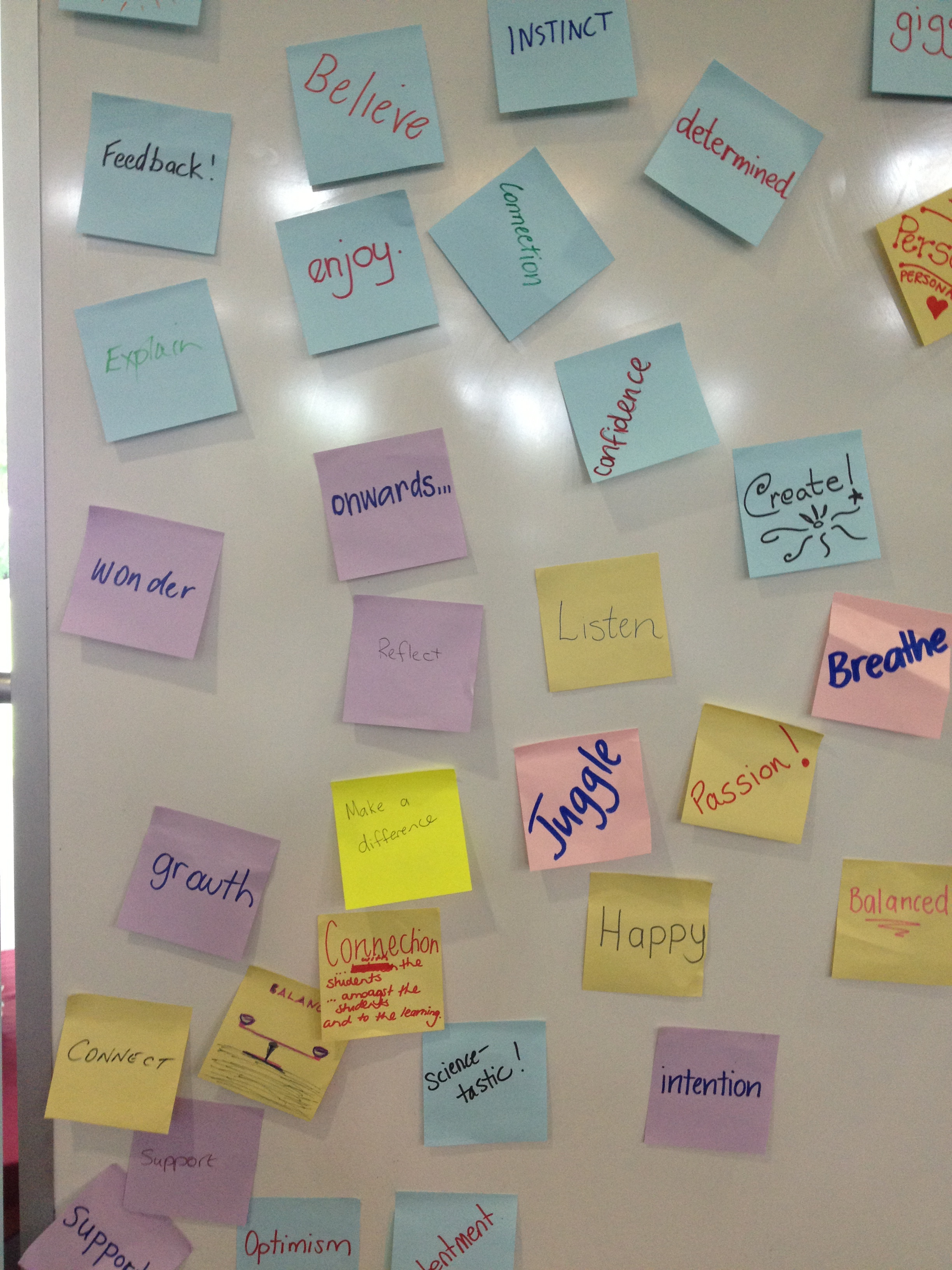I have just finished a delightful week of inquiring with the elementary teachers at Zurich International school. The work we were doing was very focused on ways in which we can elevate the ‘status’ of transdisciplinary skills as we plan, teach, assess and reflect. As I have discussed several times on this blog, learning to think, collaborate, research, self-manage and communicate are central to what it means to inquire. As an inquiry teacher, my aim is to help my students become increasingly aware of the skills and dispositions that enable them to approach ANY questions, issues, problems, challenges. I want them to learn to learn. Over the course of the week, the concept we returned to again and again was that of ‘intention’. We explored what it meant to ‘teach with intention’ – and what those intentions might look, sound and feel like in the context of an inquiry classroom. We recognized that our intentions may shift as we listen to and observe children but that, without intention, we missed teachable moments and we lacked clarity.
Much of our planning this week has been about clarifying intentions in response to students’ interests and questions. We were reminded that this is the essence of quality planning and that helps us resist the urge to generate ‘activities’ rather than consider purpose.
Being intentional helps us be better teachers – but it is also a valuable disposition as a learner. If I enter a learning experience in a mindful, intentional state – I get so much more out of it. I might remind myself to ‘listen actively’ to what my colleagues are saying or ‘stay open minded’ when I think I am about to be challenged. This ‘moment of mindfulness’ is something we can help our students learn to do. It’s not about completing a task or even about the content of the task….it’s about our intention, as learners, to get the most out of that moment. To notice.
For many of my colleagues in the southern hemisphere, a new school year is soon to begin. What better time to think about our intentions. Over the last few years, I have used a simple technique in both my personal and professional life, to capture the ‘essence’ of my intentions for the year.
Rather than identify a lengthy list of goals or resolutions, I have, instead, chosen a word. Just one word.
This word acts a gentle reminder to me of what it is I hope to do or be - as a person and as a teacher. Working with teachers at the beginning of the year, I have challenged them to do the same….”What’s your word?”
Identifying a word that captures the essence of your ‘intention’ for the year ahead is surprisingly powerful. It has a way of sneaking in to your daily activity and it becomes part of the lens through which you make a decision. I feel as if I, metaphorically, carry my word in my pocket as I journey through the year. I challenge myself to inquire into it – and to live up to it.
Regardless of the way we do it, inquiry teachers believe in the centrality of ‘agency’ – in helping students see that THEY are the ones doing the learning – learning isn't something that someone does to you. Taking time to consider goals, intentions, hopes and dreams - is an important part of developing this agency.
Are you entering the teaching year with intention?
What’s your word?
Just wondering…..

